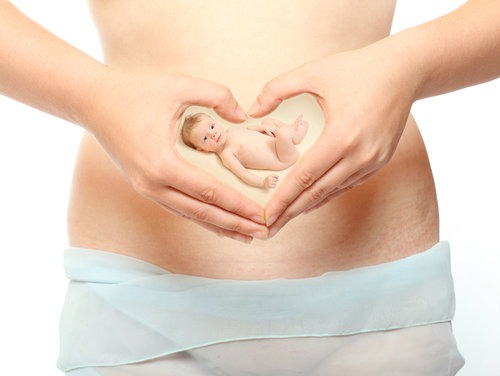Healthcare with Confidence
Infertility treatment is one of the Israel medicine fields in which leading Israeli doctors solve the problem of the inability of partners to conceive a child naturally. In women this problem is also expressed in the inability to bear a child.
There are a large number of biological and other causes of infertility which copes modern Israeli medicine. According to statistics, 40% of infertility cases are men, another 40% are associated with infertility in women, and 20% – the result of complications for both partners.
Israel is a leading country in the field of infertility treatment. Treatment success of our specialists is one of the highest in the world.
Infertility is a disease of the reproductive system, defined as failure to achieve a clinical pregnancy after 12 months or more of regular unprotected sexual intercourse (in the absence of other causes, such as breastfeeding or postpartum amenorrhea). Primary infertility occurs in couples which has never had a child. Secondary infertility – the inability to conceive after a previous pregnancy.
The causes of infertility in men and women: DNA damage, genetic factors, Robertson’s translocation, diabetes, thyroid disease, adrenal disease, hypothalamic-pituitary factors, hyperprolactinemia, hypopituitarism, exposure to toxins, physical agents, chemical dusts and pesticides. Smokers are 60% more likely to infertility than non-smokers.
Male infertility
The main cause of male infertility is low sperm quality. Infertility may be caused by a low sperm count due to endocrine problems, drug exposure, radiation or infection. The cause may be malformations testicular hormonal imbalance or blockage of the duct system of men. Most of these problems can be cured by surgery or hormonal therapy for infertility associated with viable but stationary spermatozoa, usually caused by a primary ciliary dyskinesia.
Female infertility
The causes of female infertility may be structural problems in the fallopian tube or uterus, problems with ovulation. Infertility can be caused by a blockage of the fallopian tubes due to malformations, infections such as chlamydia and / or scar tissue. For example, endometriosis can cause infertility with growth of endometrial tissue in the fallopian tubes and / or around the ovaries.
Another major cause of infertility in women may be an inability to ovulate. Malformations of ovaries can complicate the process. For example, polycystic ovary syndrome, when the ovary is partially developed and it excess male hormones. Some women are infertile because the ovary is not mature. Other factors may be overweight or underweight, age above 35 years old, etc,.
Combined infertility
In some cases, a man and a woman inability to have children may be due to a combination of causes of infertility in men and women. The cause may be genetic or immunological problems. It may also be that each partner is independently fertilia, but the couple can not conceive a child without assistance.
Diagnosis of infertility
If both partners are young and healthy and trying to get pregnant within one year have not been successful, visit our specialist can help to quickly identify potential health problems. Women over the age of 35 years should consult a doctor after 6 months of unsuccessful attempts, since diagnosis may take some time and age may affect the treatments that are possible in this case.
Our doctor examines history and conducts a physical exam. Both partners should be tested to identify the cause.
Treatment
Treatment depends on the cause of infertility, it may include counseling, hormonal therapy, surgical intervention (if necessary) or a combination of these methods. If the partner’s sperm quality and mechanical female reproductive structures in a good condition, doctor may start with prescribing a course of ovarian stimulating drugs, intrauterine insemination (IUI), which can be done at home or in an outpatient physician (sperm injection into the uterus during ovulation using catheter). With these methods fertilization occurs inside the body. Several methods can be used in combination with other techniques.
IVF. If conservative treatments are not successful doctor may suggest that patients undergo the procedure of in vitro fertilization (IVF). IVF and related techniques (ICSI, ZIFT) is assisted reproductive technology.
IVF methods usually start with ovarian stimulation to increase the production of eggs. After stimulation doctor removes one or more eggs from the ovary and unites them with sperm in the laboratory in order to obtain one or more embryos. Fertilization takes place outside the body, and the fertilized egg is placed in the woman’s reproductive tract at the time of embryo transfer procedures.
Related:
![]() Benign tumors of the uterus (fibroid)
Benign tumors of the uterus (fibroid)
![]() Endometriosis
Endometriosis
![]() Adhesions
Adhesions
![]() Amenorrhea (absence of menstruation)
Amenorrhea (absence of menstruation)
![]() Dysmenorrhea (painful menstruation)
Dysmenorrhea (painful menstruation)
![]() Menorrhagia (heavy menstrual periods)
Menorrhagia (heavy menstrual periods)
![]() Pelvic prolapse
Pelvic prolapse
![]() Vaginal infections (vaginitis), including fungal, bacterial, protozoal and viruses
Vaginal infections (vaginitis), including fungal, bacterial, protozoal and viruses
![]() Urinary incontinence
Urinary incontinence
![]() Cancer and precancerous genital conditions including ovaries, fallopian tubes, uterus,cervix, vulva
Cancer and precancerous genital conditions including ovaries, fallopian tubes, uterus,cervix, vulva



